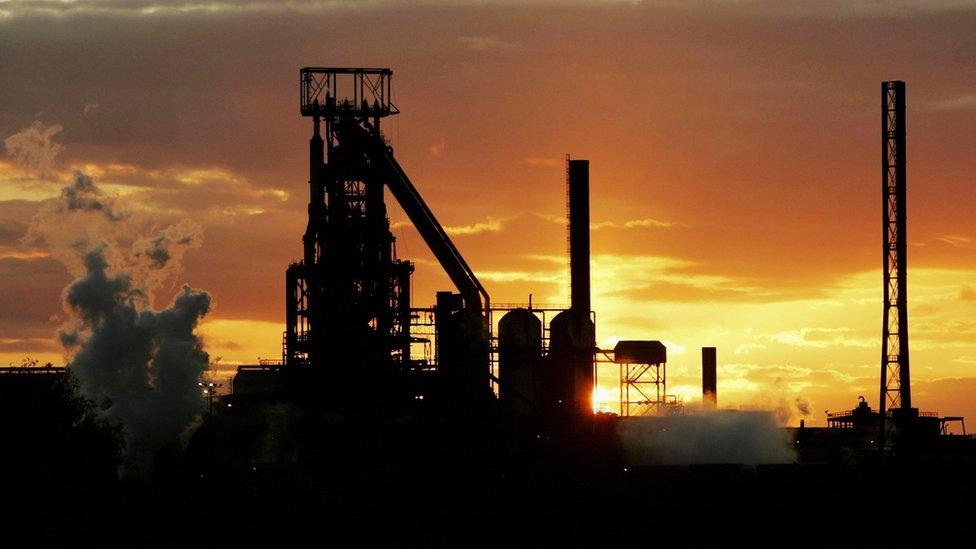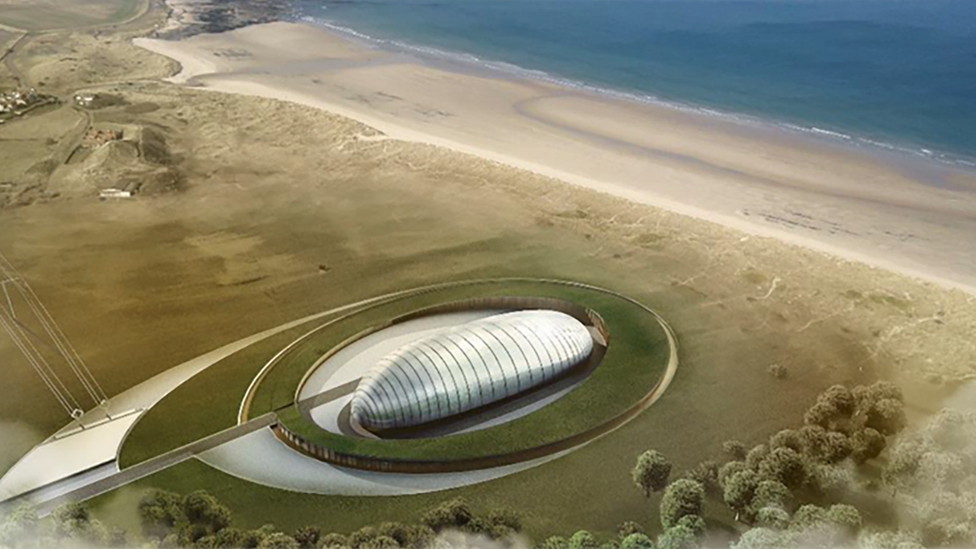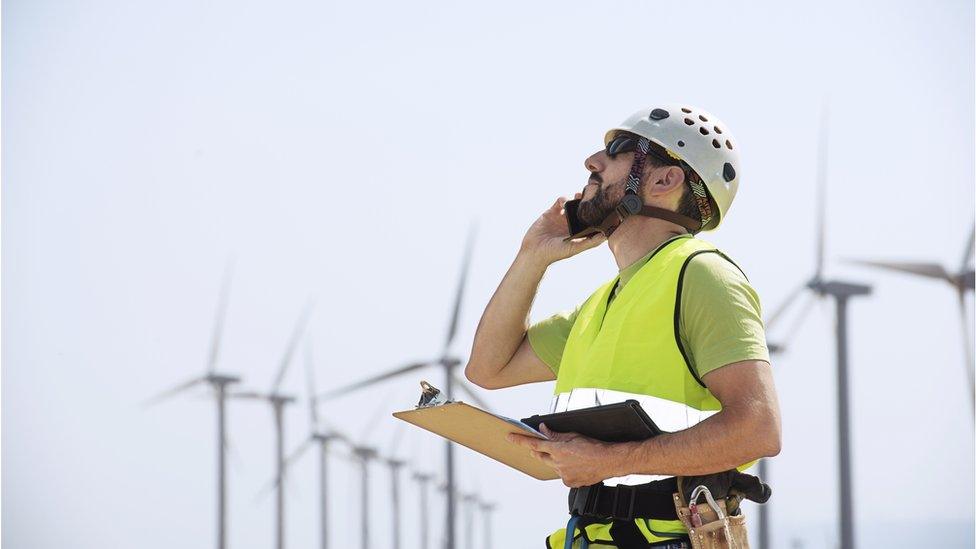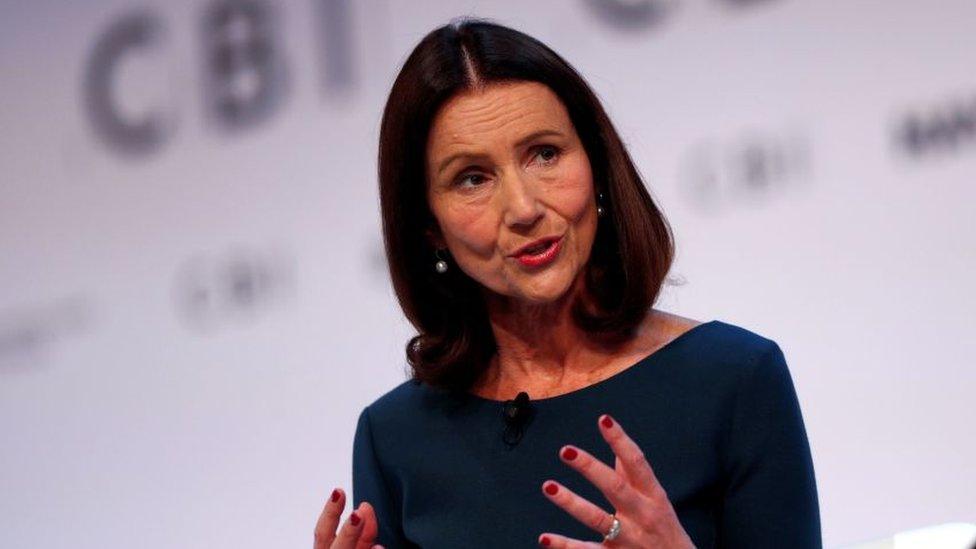Green jobs hope for Wales from UK government climate change plan
- Published
Could a new nuclear power site come to Wales?
Parts of Wales that have suffered industrial decline are set to benefit from a long-awaited plan to tackle climate change, the UK government has said.
Its aim is to create 250,000 new green jobs in the UK while cutting emissions.
Port Talbot is cited as a potential location for one of four "carbon capture clusters".
Funding is also promised to help develop pioneering mini nuclear reactors.
The firm behind the plans, Rolls-Royce, has previously said it is likely the first such facility would be built at the site of the former Trawsfynydd nuclear power station in Gwynedd.
Full details of the prime minister's 10-point plan are set to be unveiled later on Wednesday.
The government has said it will also include funding to develop mass-scale production of electric vehicle batteries, including in north Wales.
A ban on the sale of new petrol and diesel cars and vans is to be brought forward to 2030, 10 years earlier than planned.
Boris Johnson said a green industrial revolution would be powered "by the wind turbines of Scotland and the north-east, propelled by the electric vehicles made in the Midlands and advanced by the latest technologies developed in Wales".
Welsh Secretary Simon Hart said Wales was "exceptionally well-placed to drive forward decarbonisation of energy, industry and domestic heating and be a centre for innovation in green technology".
The government said it wanted to become a world leader in carbon capture technology, catching emissions from industry and storing them deep underground or turning them into other chemicals.
It is experimental stuff that has not properly taken off yet.
The prime minister said he is setting aside a further £200m on top of £800m already pledged to create "carbon capture clusters" to focus on making breakthroughs, and supporting 50,000 jobs.
Four are promised before 2030.

Of Wales' emissions in 2016, 11% came from iron and steelworks
Port Talbot could be one of the areas to benefit - alongside the Humber, Teesside, Merseyside and Grangemouth in Scotland.
Government advisers, the Climate Change Committee, have said carbon capture could have an important role to play for Wales given it has a higher share than the rest of the UK of emissions in "hard to reduce" sectors such as industry.
That accounted for 29% of Wales' emissions in 2016, with 11% coming from iron and steelworks alone.
For advancing nuclear power, £525m of funding is pledged, including money for developing the next generation of small, modular reactors.

Trawsfynydd has been considered for the next generation of small nuclear reactors
A consortium led by Rolls-Royce has announced plans to build up to 16 of the mini plants in the UK, with Trawsfynydd a favoured location.
A total of £240m is also being announced for new hydrogen production facilities, and while it is not yet clear where these would be located, industry experts have long argued Wales has a lot of potential in this field.
The announcement also repeats the prime minister's ambition to generate enough offshore wind power to supply every home in the UK, though funding in this area looks set to be focused on Scotland and the north-east of England.
- Published17 November 2020

- Published30 October 2020
- Published14 September 2020

- Published24 January 2020
